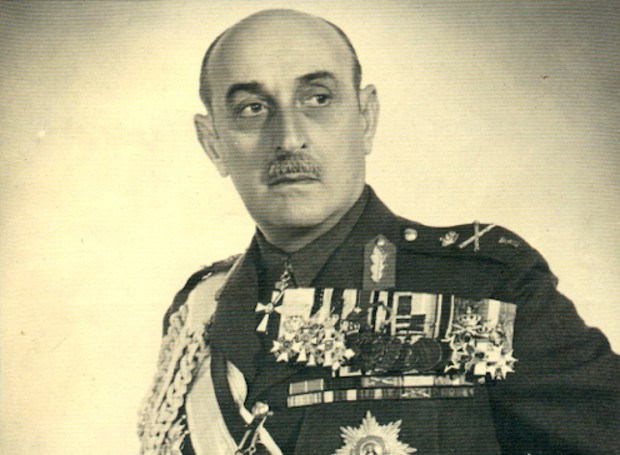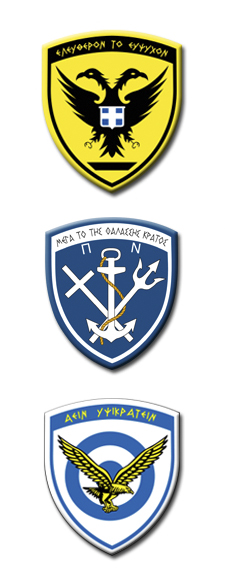History
General
On 11 April 1950, by Law no. 1431, the Ministry of National Defence was established to replace the previous Army, Navy and Air Force Ministries. The same Law (Article 2) provided for the establishment of the Hellenic National Defence General Staff through which the Minister of National Defence (MOD) practised all functions prescribed in the aforementioned Law. The Chief HNDGS was a senior officer of any one of the three Services (Army, Navy, Air Force) selected by the War Council upon recommendation of the MOD and appointed by a Decree of the MOD.
The first Chief/HNDGS was Field Marshal Alexandros Papagos. On 4 September 1950, a decree was issued 'on the Organization and Operation of the HNDGS' which arranged the details concerning the establishment and operation of the HNDGS. Pursuant to the said decree, the HNDGS comprised:
a. The Chief/ HNDGS
b. The Joint Chiefs of General Staff Council, a newly established body
c. The Joint Staff which included staff officers from all Services.

Responsibilities
In 1953, the HNDGS operated as a coordinating body through which the MOD performed his duties.
The above remained valid until 1968 when the HNDGS stopped being a coordinating body of the three Services of the Armed Forces. Then it changed into The Armed Forces Supreme Command and assumed full command over the three Services of the Armed Forces in peacetime and wartime. It was determined that the Chief of the Armed Forces would hold the rank of the General or the respective ones in the other two Services, instead of that of the Lieutenant General.
In 1977, the Armed Forces Supreme Command was named HNDGS and it became the Supreme coordinating authority of the Armed Forces responsible for the implementation of the decisions of the Governmental Council on Foreign Policy and National Defence and the Joint Chiefs of General Staff Council while the Chiefs of General Army, Navy and Air Force Staffs had the full command over their respective Services.
Moreover, the tenure of the Chief/HNDGS and the way of his selection were determined.
The HNDGS was granted additional functions on issues of defence policy, obligations at Alliance and international level, organization and control over peacekeeping contingents participating in missions abroad.
In 2002, the Law no. 2984 / 2002 'on Jointness in the Armed Forces' was passed. As a result, Law no. 2292/1995 was modified and the Chief/HNDGS exerts, from peacetime the operational command over the Joint Headquarters and their subordinate units meant to deploy in order to cope with military action threatening the security and the legitimate interests of Greece and requiring coordinated action by forces of the Services of the Armed Forces.
In 2010, a new law was passed (Law no. 3883) 'on the Command of the Armed Forces' which modified the Law no. 2292/ 1995 enabling the Chief/HNDGS to exert full command over all the Services of the Armed Forces.

Premises
HNDGS, since its establishment and until 1959, was located on the first floor of the building whitch in nowdays houses the Parliament. After the Army and the Air Force General Staffs moved into their current premises, a decision was made to construct the facilities where the HNDGS is being housed until now.



